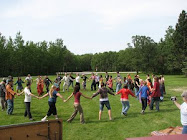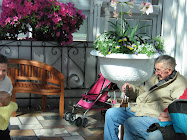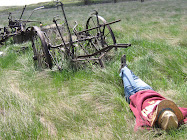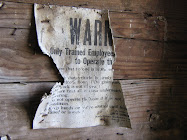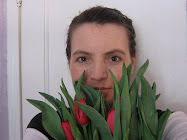© 2010 Karen Van Fossan
It's not the worst thing that ever happened to me – or “The Group That Opened the Box,” as a matter of fact.
Still, the girls in “The Group” were shocked. Disappointed. Angry.
They had planned to share pieces of the play we wrote together. They had planned to tell stories of teenage sexuality, BFFs, pregnancy, and sexual orientation – all with a glimmer in their eyes.
But then I got the call.
Our interview on “The Flag,” AM 1100, had been cancelled.
In fact, all the guests who'd been invited to reflect on women's lives and women's struggles – they were uninvited, too. No more show on women's issues. No more show on girls' desires.
Cancelled. Uninvited. These are euphemisms I use for the real situation:
We were censored.
By now, this is old news. It happened last Friday night, the evening before The Group's rousing performance at MSU-Moorhead.
I'm late getting the word out because of an unrelated event.
Our beloved family cat, Butterfly, died on Sunday morning. I mention Butterfly now, not because I'm asking for your compassion (though, if you have some, we would welcome it). I mention this because her death has shown me the nature of censorship itself.
In mourning the death of Butterfly, we long for many things – to feel the sweet coarseness of her fur again, to see her mottled face again, to hear her scrappy voice again.
Because our cat has died, we can no longer hear her voice.
To the living at least, the dead appear to be voiceless.
When we hear each other's voices, we affirm that we are alive. But when we are censored, when our voices are made voiceless, something within us dies.
“Ignore it, and it will go away,” as the saying goes. Ignore us, and we die, at least a little.
It is long past time for girls' voices to be revived.
Wednesday, January 20, 2010
Wednesday, January 13, 2010
Ode to the Unhappily Employed
© 2010 Karen Van Fossan
I just decided to apply a little grade school math to my adult life. The math problem:
If 15 million Americans are unemployed, and the unemployment rate is approximately 10%, how many Americans are currently satisfied with their work?
Maybe that's not a fair question. Second try:
If 15 million Americans are unemployed, and the unemployment rate is approximately 10%, how many Americans are currently wondering what the meaning of life could possibly be?
Not fair, either. Last try:
If 15 million Americans are unemployed, and the unemployment rate is approximately 10%, how many Americans currently have employment?
That one, I can answer. Approximately 135 million Americans have jobs.
I don't know, though, how many of them like these jobs or contemplate the meaning of life on a regular basis. What I know is this:
Since joining Facebook, I've noticed that a good number of my Friends (quite justly) grumble about their daily work situations.
Their complaints:
Coworkers are getting on their last nerve.
The work is boring.
The work takes them away from their cute, little kids.
So, while approximately 10% of us are unemployed, many of the rest of us are unhappily employed. Does this seem like the American Dream to you?
Anyway.
Having worked in many settings, in many cities, I've realized that the workplace can be one of the most difficult places to put our dreams into action – or, as Mohandas Gandhi once said, to “be the change we wish to see in the world.”
The workplace seems conspiratorially designed to put your morals to the test – like an undercover cop trying to sell you drugs. But in this case, it's an undercover cop annoying you, boring you, and keeping you from your children.
Unfortunately, I don't have any solutions, not really. “Follow your bliss” is great, but it's too self-absorbed for me. I vote for something more like, “Let's support each other to follow our blisses.” (If blisses is a word.)
All I have to offer is this:
A translation. The translation of our ideals into workplace realities. The translation of what we hold dear into what we face at work.
Ideal Number One:
“Be the change you wish to see in the world.”
Workplace Translation:
“If you want something done right, you got to do it yourself.”
Ideal Number Two:
“Do unto others as you would have them do unto you.”
Workplace Translation:
“Two can play at that game.”
Ideal Number Three:
“The arc of the universe is long, but it bends toward justice.”
Workplace Translation:
“I live for weekends.”
Ideal Number Four:
“The best and most beautiful things in the world cannot be seen or even touched.”
In Workplace Translation:
“You break it, you bought it.”
If you have more translations, please feel free to share them.
Until then, let's keep dreamin'.
I just decided to apply a little grade school math to my adult life. The math problem:
If 15 million Americans are unemployed, and the unemployment rate is approximately 10%, how many Americans are currently satisfied with their work?
Maybe that's not a fair question. Second try:
If 15 million Americans are unemployed, and the unemployment rate is approximately 10%, how many Americans are currently wondering what the meaning of life could possibly be?
Not fair, either. Last try:
If 15 million Americans are unemployed, and the unemployment rate is approximately 10%, how many Americans currently have employment?
That one, I can answer. Approximately 135 million Americans have jobs.
I don't know, though, how many of them like these jobs or contemplate the meaning of life on a regular basis. What I know is this:
Since joining Facebook, I've noticed that a good number of my Friends (quite justly) grumble about their daily work situations.
Their complaints:
Coworkers are getting on their last nerve.
The work is boring.
The work takes them away from their cute, little kids.
So, while approximately 10% of us are unemployed, many of the rest of us are unhappily employed. Does this seem like the American Dream to you?
Anyway.
Having worked in many settings, in many cities, I've realized that the workplace can be one of the most difficult places to put our dreams into action – or, as Mohandas Gandhi once said, to “be the change we wish to see in the world.”
The workplace seems conspiratorially designed to put your morals to the test – like an undercover cop trying to sell you drugs. But in this case, it's an undercover cop annoying you, boring you, and keeping you from your children.
Unfortunately, I don't have any solutions, not really. “Follow your bliss” is great, but it's too self-absorbed for me. I vote for something more like, “Let's support each other to follow our blisses.” (If blisses is a word.)
All I have to offer is this:
A translation. The translation of our ideals into workplace realities. The translation of what we hold dear into what we face at work.
Ideal Number One:
“Be the change you wish to see in the world.”
Workplace Translation:
“If you want something done right, you got to do it yourself.”
Ideal Number Two:
“Do unto others as you would have them do unto you.”
Workplace Translation:
“Two can play at that game.”
Ideal Number Three:
“The arc of the universe is long, but it bends toward justice.”
Workplace Translation:
“I live for weekends.”
Ideal Number Four:
“The best and most beautiful things in the world cannot be seen or even touched.”
In Workplace Translation:
“You break it, you bought it.”
If you have more translations, please feel free to share them.
Until then, let's keep dreamin'.
Tuesday, January 5, 2010
The Piano Dog, Technology, and Telepathy
© 2010 Karen Van Fossan
Before I sing the praises of modern communication technology (which I'm just about to do), I want to make a confession. Or maybe two.
I am a born optimist. In fact, in high school, I wrote an entire paper arguing for an optimistic reading of Lord of the Flies -- that vastly depressing book. (I got an A.)
I also know that I gravitate toward the outlier's position. It's not that I'll call the sky red if you call the sky blue. But I am behooved (I've never known quite why) to see many perspectives on an issue. The closest I ever got to discarding my deeply-rooted feminism, for instance, was during my first Women's Studies course in college. (My feminism is safe and sound today.)
In other words, after hearing much talk -- and much wisdom -- about how modern technology drives us apart, it's as if I can't help seeing the ways it pulls us together.
First example:
My dear friend Julie is away. Just this very minute, I got an email message from Julie. “Miss you!!!!” it said. Of course, I felt happy and connected, reading her message.
Second example:
The Adventures of “Piano Dog”
by Us
Once upon a time, there was a dog who loved pianos. The only problem was, he had two left feet. Now this created a few problems, namely problems with rhythm. He would try to practice arpeggios, but only to find that he didn't know what they were. He needed someone to help, so he went on a quest, and on the way, saw another dog – and he had two right feet! Except this dog loved to play the triangle. And so, under the full moon, the first dog and the second dog set out in search of a fun-lovin' coyote [KY-oat] who lived in the Sonoran Desert in Arizona. This coyote lived in a silver bullet trailer, and inside of it, she kept a recording studio and scissors for left-handed dogs – as she had been an orthopedist in a previous life, and she collected prosthetic dog legs in various sizes, shapes, and colors. Imagine the faces of those two canine vagabonds when they realized all this potential for making a band! All they needed was a really good band name. But that would have to wait because out of the sky came a...a...a...Could it be?...well...Maybe...or no...I think...wait! Wait! Yes...definitely...it's a...
The story isn't finished, because we haven't finished writing it -- we being “Us,” a combination of total strangers and long-time friends. I posted the first sentence or so on Facebook. From there, the story was picked up by Marilee in Bismarck, Debi in Mandan, Lisa in Fargo, Laura in Chicago, Sara in Georgia, and so on.
Third example:
My partner's distant cousin Ryan (who found our family through electronic networking) recently asked this question on Facebook: “When you were in high school or college language class, were you forced to pick an authentic name to be called in that class? What was it?”
So far, the responses have been Ana, Chloe, Renee, Ursula, Anya, Anja, Juliet (that was mine), Noel, Elena, Heidi, Jeanne, and Perla.
Suddenly, my strange and vulnerable experiences in high school French class became the stuff of connection across the miles.
Fourth and final example:
A couple of weeks ago, I posted a poem to my blog. Maggy in Chicago posted a poem in response, Kathleen in Oregon posted a reply to Maggy's poem, and so on. Using modern technology, we engaged in an age-old art -- telling our life stories and getting feedback.
Having lived in the Western world all my life, these exchanges are as close as I've ever come to sharing winter tales around a fire. Never having lived in a such a circular culture, I relish any coming together of our stories. I see this as a return to our human (narrative) roots.
In my field, Dance/Movement Therapy, there is a belief that humanity (and perhaps other species as well) need to be witnessed -- seen, heard, noticed, and acknowledged. We need this even more than we need to be understood. Not only that, we need to let others know we've witnessed them.
So, when my old friend Michele posts, “Thanks for a super fun NYE!” – my instinct is to reply, “That was one of my favorite New Years Eves ever!” She lets me know she has seen me, I let her know I have seen her. (In the world of Facebook, we also know we are seen by other loved ones and friends.) In these ways, we co-create community.
Really, though, I'm not singing the praises of technology, as much as humanity itself. Like chimps, baboons, gorillas, and bonobos, we thrive when we are connected to one another. While technology drives us apart, we also turn it around to pull us together.
Now for my secret theory:
Generally, people in indigenous cultures say they can rely on psychic communication more than people in technological cultures do. But could it be that telepathy and communication technology have something in common? Both are forms of sharing information across great distances, the transfer of information takes place in largely invisible realms, and the more you think about it, the more incredible it seems that it actually works.
Is it possible that communication technology is like training for telepathy? Soon, even before I check that email, post, or comment – I'll know my friends love me. And they'll know I love them, too.
Before I sing the praises of modern communication technology (which I'm just about to do), I want to make a confession. Or maybe two.
I am a born optimist. In fact, in high school, I wrote an entire paper arguing for an optimistic reading of Lord of the Flies -- that vastly depressing book. (I got an A.)
I also know that I gravitate toward the outlier's position. It's not that I'll call the sky red if you call the sky blue. But I am behooved (I've never known quite why) to see many perspectives on an issue. The closest I ever got to discarding my deeply-rooted feminism, for instance, was during my first Women's Studies course in college. (My feminism is safe and sound today.)
In other words, after hearing much talk -- and much wisdom -- about how modern technology drives us apart, it's as if I can't help seeing the ways it pulls us together.
First example:
My dear friend Julie is away. Just this very minute, I got an email message from Julie. “Miss you!!!!” it said. Of course, I felt happy and connected, reading her message.
Second example:
The Adventures of “Piano Dog”
by Us
Once upon a time, there was a dog who loved pianos. The only problem was, he had two left feet. Now this created a few problems, namely problems with rhythm. He would try to practice arpeggios, but only to find that he didn't know what they were. He needed someone to help, so he went on a quest, and on the way, saw another dog – and he had two right feet! Except this dog loved to play the triangle. And so, under the full moon, the first dog and the second dog set out in search of a fun-lovin' coyote [KY-oat] who lived in the Sonoran Desert in Arizona. This coyote lived in a silver bullet trailer, and inside of it, she kept a recording studio and scissors for left-handed dogs – as she had been an orthopedist in a previous life, and she collected prosthetic dog legs in various sizes, shapes, and colors. Imagine the faces of those two canine vagabonds when they realized all this potential for making a band! All they needed was a really good band name. But that would have to wait because out of the sky came a...a...a...Could it be?...well...Maybe...or no...I think...wait! Wait! Yes...definitely...it's a...
The story isn't finished, because we haven't finished writing it -- we being “Us,” a combination of total strangers and long-time friends. I posted the first sentence or so on Facebook. From there, the story was picked up by Marilee in Bismarck, Debi in Mandan, Lisa in Fargo, Laura in Chicago, Sara in Georgia, and so on.
Third example:
My partner's distant cousin Ryan (who found our family through electronic networking) recently asked this question on Facebook: “When you were in high school or college language class, were you forced to pick an authentic name to be called in that class? What was it?”
So far, the responses have been Ana, Chloe, Renee, Ursula, Anya, Anja, Juliet (that was mine), Noel, Elena, Heidi, Jeanne, and Perla.
Suddenly, my strange and vulnerable experiences in high school French class became the stuff of connection across the miles.
Fourth and final example:
A couple of weeks ago, I posted a poem to my blog. Maggy in Chicago posted a poem in response, Kathleen in Oregon posted a reply to Maggy's poem, and so on. Using modern technology, we engaged in an age-old art -- telling our life stories and getting feedback.
Having lived in the Western world all my life, these exchanges are as close as I've ever come to sharing winter tales around a fire. Never having lived in a such a circular culture, I relish any coming together of our stories. I see this as a return to our human (narrative) roots.
In my field, Dance/Movement Therapy, there is a belief that humanity (and perhaps other species as well) need to be witnessed -- seen, heard, noticed, and acknowledged. We need this even more than we need to be understood. Not only that, we need to let others know we've witnessed them.
So, when my old friend Michele posts, “Thanks for a super fun NYE!” – my instinct is to reply, “That was one of my favorite New Years Eves ever!” She lets me know she has seen me, I let her know I have seen her. (In the world of Facebook, we also know we are seen by other loved ones and friends.) In these ways, we co-create community.
Really, though, I'm not singing the praises of technology, as much as humanity itself. Like chimps, baboons, gorillas, and bonobos, we thrive when we are connected to one another. While technology drives us apart, we also turn it around to pull us together.
Now for my secret theory:
Generally, people in indigenous cultures say they can rely on psychic communication more than people in technological cultures do. But could it be that telepathy and communication technology have something in common? Both are forms of sharing information across great distances, the transfer of information takes place in largely invisible realms, and the more you think about it, the more incredible it seems that it actually works.
Is it possible that communication technology is like training for telepathy? Soon, even before I check that email, post, or comment – I'll know my friends love me. And they'll know I love them, too.
Subscribe to:
Comments (Atom)

